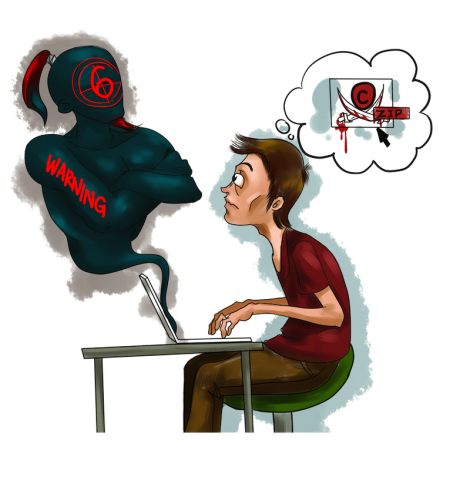The Copyright Alert System (CAS), or the six strikes program, is a recent intellectual property policy in the United States enacted by several copyright holders such as Time Warner and AT&T. At the outset, the program seems to be a reworked response to the failed the Stop Online Piracy Act (SOPA) and the Protect Intelectual Property Act (PIPA) last year. That being said, such a policy is a confirmation of the U.S.’ continual struggle against accessible intellectual property.
What sets the CAS program apart from SOPA and the PIPA is the six strikes system that characterizes it. It is also not another bill proposed in congress. Under the new policy, any Internet user who is deemed to have committed Internet piracy will receive a series of six warnings from their ISP, which will inform them of their illegal activities and require them to acknowledge their actions. Along with the last two warnings, and depending on the situation, users will receive a significant reduction to their Internet connection or redirection to a copyright protocol web page. Before this stage is reached, it is hoped that users will stop their alleged activities. To this end, the six strikes program is seen as a more educative and fair measure against content theft.

NANCY JI/THE VARSITY
While the program appears to be didactic in its intentions towards the community, its effectiveness is questionable. The amount of public outcry from the global community about SOPA and PIPA makes it clear that the reaction is representative of the majority of the Internet community’s wishes.
Corporations have to recognize that copyright infringement, whether on the Internet or through other channels of distribution, has been occurring for a long period of time. For example, countries such as Russia and China have been known to have an extensive record of piracy counterfeiting for many years now. Another example is BitTorrent protocols that allow for peer-to-peer file sharing by millions. These general trends are not likely to stop any time soon.
Similarly, more governments have been inspired by the American legislative attempts and protocols on piracy. For example, India, another nation that faces high rates of piracy, is working on a SOPA-influenced legislation to protect the interests of its billion-dollar film industry. The UK also has proposed a more extreme three strikes policy, which will come to effect by 2014.
While the influence of SOPA and PIPA may be lasting and great, these measures are futile. Instead of engaging in an endless struggle with content sharing through legal loopholes or attempts, governments should instead redirect their attention to the question of accessibility.
The truth of the matter is that people engage in illegal activities of distribution of copyright material because of the high price of acquiring such materials. As businesses are increasingly motivated by profit-maximizing goals, the more expensive it is to purchase desired products. But despite financial losses, large corporations still manage to recuperate. This is clearly evident in the film industry, wherein box office disasters rely on merchandising and dvd sales to make up for lost revenue. Though this may generate substantial profits, consumers are, ironically, still drawn to acquiring these materials through illegal means due to high prices. This then returns to an indefinite loop that is rooted in accessibility.
Instead of being geared toward measures that will be met with public contempt, perhaps governmental policies should address accessibility concerns. Only then will it be possible to remove this habit of free culture that continually persists in this generation.
Ken Kongkatong is a first-year student planning to double major in English and Psychology.

